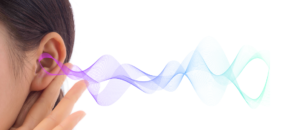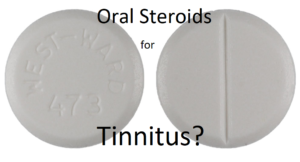Sleeping with Tinnitus is a very common problem. This study estimates that almost 77% of people with Tinnitus struggle to sleep well. Below are several tips that will show you how to sleep with Tinnitus. If you practice these tips, you will sleep better, regardless of how bad the ringing in your ears is. Let’s get right to the tips for sleeping with Tinnitus.
If you have pulsatile Tinnitus, please see this article I wrote about Tinnitus while lying down.
What is Your Tinnitus Handicap Score?
Calculate your THI Score in about 2-3 Minutes
Coping Techniques to Help You Sleep with Tinnitus
Don’t “Try” to Sleep – Manage your Tinnitus Anxiety
When you haven’t slept well in a long time, you desperately want to force yourself to sleep well. Unfortunately, forcibly trying to convince your body to go into a state of sleep is very counterproductive. It is almost guaranteed to keep you up through the night.
Tinnitus and anxiety go hand in hand. To sleep or sleep better with Tinnitus, you need to get your anxiety under control. Here are several ways to do that.
Start journaling
Is your mind racing with thoughts? Why am I not able to sleep? How am I going to handle all that work tomorrow, without any sleep? Why is my life so hard? Why do I have Tinnitus? These are all questions that will race across your mind when you suffer from Tinnitus. Every night, about half an hour before you want to sleep, start journaling down these thoughts. Write out (not on the computer because you want to avoid blue light – more on that later) whatever is on your mind. Putting pen to paper will almost instantly reduce the burden on your mind. With reduced anxiety, the chances of you sleeping are much better. If not about your thoughts, you can also write about your day, your t0-do list for tomorrow or just about anything that comes to mind. The point is to have a distraction that will take you away from the anxiety associated with not being able to sleep and with having a Tinnitus condition.
How Severe is Your Tinnitus?
Find out by using this THI (Tinnitus Handicap Inventory) Scoring Calculator
Don’t Toss and Turn – Eat a snack instead
Can’t sleep even after journaling? Get out of the bedroom. The longer you spend tossing and turning and getting frustrated, it is more and more likely that your mind disassociates your bed with sleep. Get out of the bedroom and head out to the kitchen to make yourself a light snack. A few tart cherries, pistachios or even some cereal with hot milk are great bedtime snacks. A small meal will also make your body consume energy, pushing you into a tiredness zone. As soon as that first yawn hits you, head on back to your bedroom and go to sleep immediately.
Swap Screen time for a tinnitus exercise routine
Blue light from electronic screens upsets your body’s circadian rhythm. Screen light basically tells your body clock that it is still daytime out. Avoid screens for at least 90 minutes before sleep.
Use these Tinnitus relief exercises as a bedtime routine instead. The exercises suggested in those post are for your ears, neck, your breathing and also your mind. If you can find the discipline to do them all just for even just one night as an experiment, you will be blown away at the quality of sleep you can have. A yoga routine meant for Tinnitus can also be a very healthy way to wind down every night.
Do you take Antidepressants? Talk to your doctor
Many people suffering from Tinnitus are often on anxiety medication or antidepressants. But, almost all antidepressants are ototoxic. What does that mean? It means that the medications can cause various problems with your ears. Vertigo, hearing loss and Tinnitus are all very commonly reported side effects stemming from antidepressant use.
While there are no antidepressants that are non-ototoxic, there’s a sliding scale of highly ototoxic to less ototoxic. Read about it in this post I wrote about best antidepressants for Tinnitus.
Avoid Nighttime Quiet and Find the perfect White Noise
Nights are quieter and Tinnitus is usually more pronounced as a result, as your brain is more aware of the only sound it can hear. But, the lack of environmental sounds can be supplemented by white noise. But, everyone’s therapeutic white noise is different.
Ideally, white noise should be able to help you ignore or at least significantly drown out your Tinnitus ringing. This is an excellent white noise generator with which you can find the perfect white noise for you and you alone.
Don’t crank up the white noise volume to very high levels though. It should ideally be at a level that is lower than the volume associated with the ringing in your ears.
Talk to your Doctor about Melatonin
Melatonin is a natural sleep aid. It is actually produced by your own body. But, production of this sleep hormone is disrupted by our exposure to blue light from digital screens and even from various forms of indoor lighting.
Thankfully, melatonin can easily be supplemented, with a doctor’s prescription of course. Talk to your doctor about going on Melatonin. It is non-addictive and without side effects. Learn more about melatonin and Tinnitus here.
Avoid that Bedtime Alcoholic Drink
Have a habit of having a drink before you sleep? Alcohol can certainly make your drowsy and seem like it is getting you ready for sleep. But, it won’t allow you to sleep well. Moreover, alcohol can definitely make your Tinnitus worse. Substitute your alcoholic beverage with a glass of warm milk instead.
Try Aromatherapy
Some smells like Lavender, Bergamot and Valerian can really relax you and get you ready for sleep. Candles or diffusers that put out these helpful scents can definitely help you both fall asleep and stay asleep.
Create a Sleep-Friendly Bedroom
An inviting bedroom can definitely help you sleep better. Here are several things you can do to make your bedroom sleep-friendly.
- Install blackout curtains
- Turn off all lights before you sleep (Even those red standby lights from appliances and electronics etc.)
- Buy a blue-light free nightlamp to wind down before sleep
- Install air conditioning or a thermostat to set room temperature between 60° and 68° Fahrenheit
Avoid Earplugs
Foam or silicone earplugs can block the discharge of ear wax that can make your Tinnitus worse. Ear plugs are OK to wear if you are trying to protect your ears against loud sounds or if you are looking for ear plugs that can provide sleep or masking sounds. Please read our Tinnitus ear plug buying guide here.
Follow a Consistent Sleep Schedule
This might be the last tip on our list but it may well be the first! Going to bed and waking up at around the same time everyday is an excellent way to find a way to sleep with Tinnitus. It will take some discipline to get it right but you must strive to achieve it. If you find yourself waking up earlier than you expected, try persisting with your intended schedule until you start waking up at the right time. It will eventually happen, as the body adjusts.
A consistent sleep schedule allows both your body and mind to retire consistently every night, letting you sleep better, even with Tinnitus.


